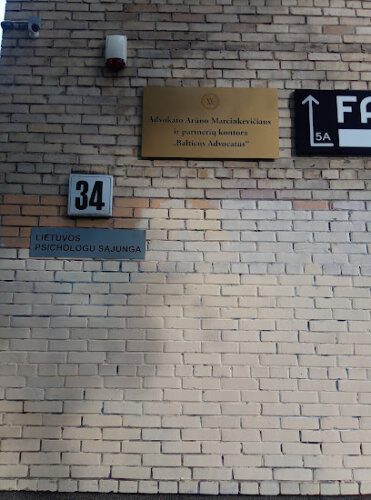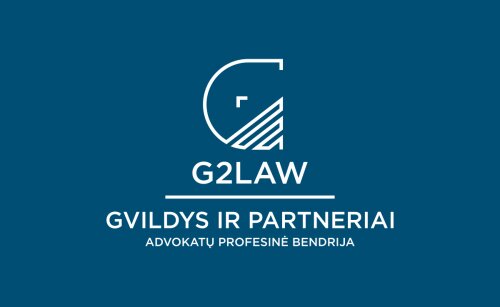Best State, Local, and Municipal Law Lawyers in Republic of Lithuania
Share your needs with us, get contacted by law firms.
Free. Takes 2 min.
Or refine your search by selecting a city:
List of the best lawyers in Republic of Lithuania


About State, Local, and Municipal Law in Republic of Lithuania
State, Local, and Municipal Law in Lithuania governs the relationships, rights, and obligations of individuals and institutions within the country's various administrative divisions. It involves the legislation and regulations enacted by the national government and local municipalities to ensure orderly development, public services, and local governance. This area of law dictates how municipalities operate, the powers they are granted, and their responsibilities toward their communities. It encompasses a range of issues from land use, public works, community services, and local taxes to municipal budgets and local government elections.
Why You May Need a Lawyer
Engaging a lawyer who specializes in State, Local, and Municipal Law can be crucial in numerous scenarios, including:
- Disputes involving municipal zoning or property development.
- Issues related to local government regulations or municipal services.
- Challenges to property tax assessments or municipal fees.
- Legal actions involving municipal contracts or public procurement.
- Participating in or challenging local elections or governance decisions.
- Understanding the implications of land use planning and environmental regulations.
Local Laws Overview
State, Local, and Municipal Law in Lithuania involves several key areas:
- Local Governance: The structure is largely decentralized, with municipalities handling many regional matters. Understanding the specific responsibilities of these municipalities is crucial for addressing relevant legal matters.
- Land Use and Zoning: Regulations governing how land within municipalities can be used ensure orderly development, prevent overcrowding, and maintain public utility services.
- Public Procurement: Local authorities are responsible for significant public procurement, and there are strict regulations to ensure transparency and fairness.
- Environmental Protection: Municipalities play an essential role in implementing environmental laws, which can include restrictions on construction and business operations.
- Community Services: Local governments are tasked with managing services such as waste collection, public transportation, and housing, which are governed by specific local regulations.
Frequently Asked Questions
What is the role of municipalities in Lithuania?
Municipalities in Lithuania manage local interests, including implementing regional policies and providing public services. They operate independently but within the framework of national legislation.
How can I challenge a zoning decision in my locality?
To challenge a zoning decision, a formal complaint must be submitted to the municipal administration. If unresolved, legal steps can be taken through administrative courts.
What processes are involved in public procurement at the municipal level?
Public procurement involves competitive bidding, where tenders are published, and interested parties can submit proposals. Regulations ensure transparency and equal opportunities for all participants.
Are there legal requirements for participating in local elections?
Yes, local election participation requires Lithuanian citizenship and registration within the specific municipality. Legal guidelines dictate the process for candidacy and voting.
How does one address grievances with municipal services?
Individuals should first address grievances directly with the service provider or municipal office. If unresolved, the matter can be escalated to administrative authorities or courts.
How is municipal legislation enacted in Lithuania?
Municipal councils enact local legislation within the framework of national laws and the Constitution of Lithuania. This process involves proposal drafting, public consultation, and approval by the council.
What are the common types of taxes imposed by municipalities?
Common municipal taxes include property taxes, land taxes, and various local service fees, which fund community services and infrastructure.
Can municipalities impose their environmental regulations?
Municipalities can impose environmental regulations that align with national standards, enhancing specific protections or controls as needed within their jurisdiction.
How are municipal budgets decided?
Municipal budgets are decided through a public budget planning process, including proposals from the executive branch and approval by the municipal council.
What recourse is available if I'm affected by a municipal decision?
Affected parties can file a complaint with the appropriate municipal body or pursue legal action in administrative court for resolutions or compensation.
Additional Resources
For those seeking further assistance, resources include:
- Ministry of the Interior of the Republic of Lithuania - for national legislation and guidelines.
- Local Government Law Association - offering advice and legal resources.
- Lithuanian Courts - for access to legal decisions and judiciary proceedings.
- Community legal aid centers and non-profit organizations that provide guidance.
Next Steps
If you require legal assistance with State, Local, and Municipal Law in Lithuania, start by consulting a lawyer specializing in this field. You can research local legal experts, inquire at municipal offices for recommendations, or contact state-managed legal services for guidance. Understanding your legal rights and obligations through qualified advice can significantly influence the outcome of your legal matters.
Lawzana helps you find the best lawyers and law firms in Republic of Lithuania through a curated and pre-screened list of qualified legal professionals. Our platform offers rankings and detailed profiles of attorneys and law firms, allowing you to compare based on practice areas, including State, Local, and Municipal Law, experience, and client feedback.
Each profile includes a description of the firm's areas of practice, client reviews, team members and partners, year of establishment, spoken languages, office locations, contact information, social media presence, and any published articles or resources. Most firms on our platform speak English and are experienced in both local and international legal matters.
Get a quote from top-rated law firms in Republic of Lithuania — quickly, securely, and without unnecessary hassle.
Disclaimer:
The information provided on this page is for general informational purposes only and does not constitute legal advice. While we strive to ensure the accuracy and relevance of the content, legal information may change over time, and interpretations of the law can vary. You should always consult with a qualified legal professional for advice specific to your situation.
We disclaim all liability for actions taken or not taken based on the content of this page. If you believe any information is incorrect or outdated, please contact us, and we will review and update it where appropriate.
Browse state, local, and municipal law law firms by city in Republic of Lithuania
Refine your search by selecting a city.












